Benefits of a Mini-Split AC
Posted on by WestAIR Heating & Cooling
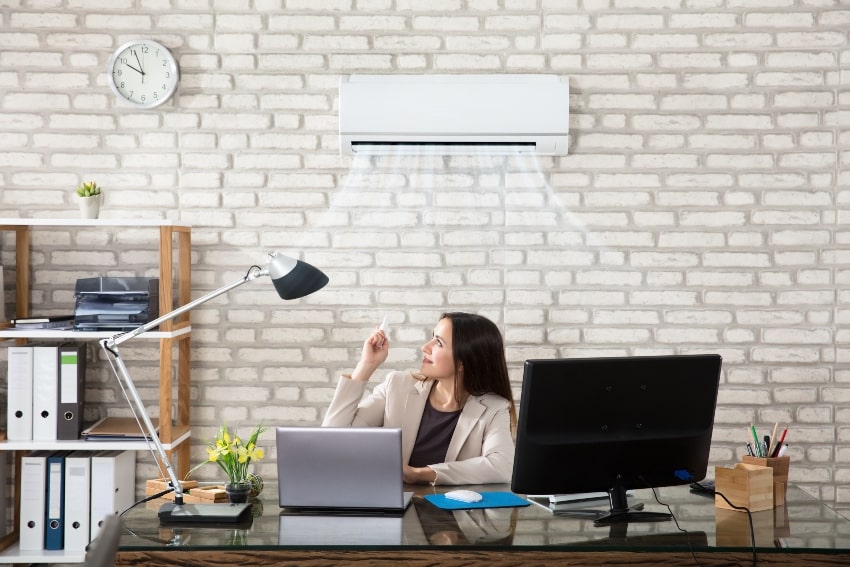
We should never take the air conditioning for granted. It helps to cool us down on those hot summer days, it provides better air quality for us, and it even helps us sleep better. There is more than just one cooling system. In fact, there are 8 different types, but the ductless mini-split air conditioner may be the best option if you’re thinking about an upgrade. Keep reading to learn the benefits of a mini-split AC and why it might be the best choice for your home, warehouse office, or garage.
Environmentally Smart
In today’s world, everyone is trying to be environmentally smart, from buying locally grown food to using more ecofriendly products in their households. When you invest in a ductless mini-split, you are being more energy efficient and reducing consumption. Some forced air systems can often be uneconomical because the ductwork can have tears, gaps, and other issues causing cooling loss.
No Ductwork Needed
Many older homes do not contain ductwork. This makes it nearly impossible to have central air in your household. Therefore, you may need mini-splits installed in your house. This may be seen as an advantage to some though. Ductwork can often become pricey and complex. When it comes to cooling and installing air into your older home, ductless mini-splits are the number one choice.
Budget Friendly
In today’s society, if you are trying to be frugal, we would definitely recommend having ductless mini-splits through-out your house. Mini-splits cost less than installing whole home ductwork. They also are energy efficient, and require less maintenance than your average window unit. You will typically find yourself paying between $4,000 and $6,000 to get a single head ductless mini-split installed. Multi head systems range from $6,000-$10,000 depending on the design and sizing. Looking for a company to install a ductless air conditioner in your house, garage, or warehouse office? Schedule a service with WestAIR Heating & Cooling today.
Health Conscious
The June flowers are still in bloom, so that means lots of itchy eyes, sneezing, and coughing. Ductless mini-splits lower your risk of breathing in contaminants in the air, help balance out humidity in the air, and there won’t be any ductwork toxins like pests, insect droppings, dust, and bacteria. Ductless mini-splits will transfer clean air directly in and out of your house.
Whether you’re working hard to fix your car in the garage or sending emails in your home office, you should be keeping cool, saving money, and breathing better air. Ductless mini-splits are effective, budget friendly, and high quality units. If you are looking to have one installed, contact our professionals at WestAIR heating & Cooling today.
This entry was posted in AC,Air Conditioning,Cooling and tagged Air conditioner, air conditioning, budget friendly, Cooling, Mini-split
Repair or Replace: 6 Signs You Need a New Air Conditioner
Posted on by WestAIR Heating & Cooling
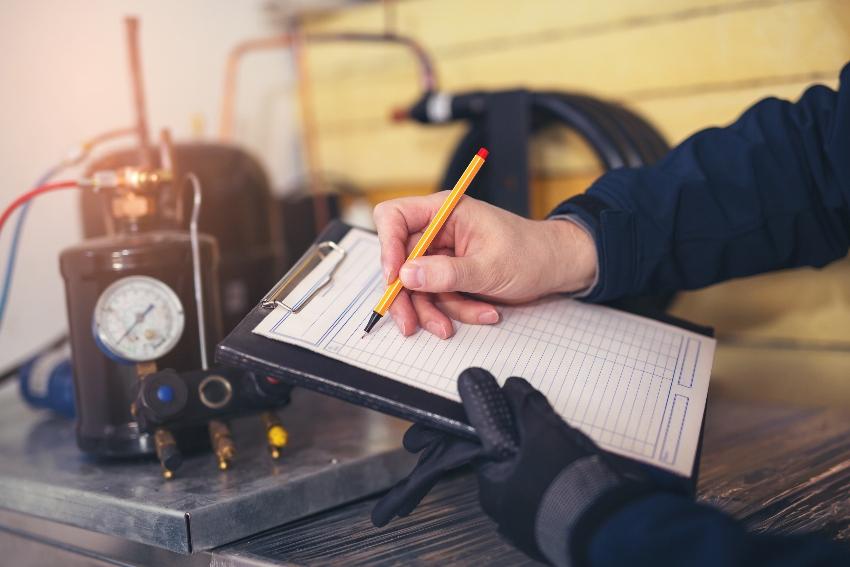
The weather is heating up here in Minnesota. Have you given your cooling system a test run yet? Doing so allows you to address any issues before the hot and humid summer days arrive. But how will you know if you need a repair or a replacement? Read on to learn about six signs you need a new air conditioner.
Frequent Repairs and Old Age
According to the U.S. Department of Energy (DOE), central air conditioners typically last about 15-20 years. And while occasional repairs are to be expected, having to do so frequently means you likely need a replacement. If your AC is around 15 years old and/or needs multiple service calls during the cooling season, it may be time to forget the repair bills and invest in a new cooling system.
Strange Odors and/or Sounds
Your AC shouldn’t be silent, but be on alert for certain noises that point to a problem:
- Loud grinding, squealing, or scraping noises could indicate a faulty belt, which can damage other parts if unaddressed.
- Frequent cycling (system turning on/off) could be caused by an improperly sized unit, a leaky ventilation system, or issues with the evaporator coils.
Additionally, the air pushed out by the system should not offend your nostrils. Don’t ignore strange odors when your AC is on:
- Burning smells may be due to burned-out wiring or other issues with the unit’s internal pieces, which could lead to an electrical fire.
- Foul, rotten egg smells could indicate a gas leak that poses a serious health and safety hazard for you and your family.
- Musty smells could mean moisture is escaping into your ductwork and creating health risks.
If you notice any of these issues, contact WestAIR ASAP to investigate and resolve the issue to keep your household safe.
Moisture Buildup On/Around Condenser Unit
Your AC will naturally produce some condensation, but liquids should never leak from the unit. Pooling water may be caused by a blocked or busted condensation tube and is a less serious issue. However, the refrigerant the system uses to cool the air is poisonous. Contact our expert HVAC technicians immediately if you notice any liquids on or around the condenser unit.
Excess Indoor Humidity
Speaking of moisture, a properly functioning cooling system should help maintain proper indoor humidity levels. If your home feels excessively humid, that’s a sign that your AC is failing and may need to be replaced.
Weak, Warm, and/or Uneven Air Distribution
Air conditioners should supply your entire home with cool, evenly distributed air. Warm air could be caused by a problem with the compressor or restricted airflow. If you notice uneven or weak air distribution from your vents, you may need to change/clean your filter or clean your ductwork to clear a blockage. You should schedule a professional inspection from an HVAC specialist to diagnose the exact cause and discuss the ideal solution to these problems.
Higher Energy Bills
Higher energy bills are to be expected as we increase the demand on our HVAC system during the cooling months. But if your bills seem to spike unreasonably, it’s likely that your AC isn’t operating efficiently and needs to be repaired or replaced.
Rely on WestAIR Heating & Cooling for AC Repair and Replacement
As we prepare for the hot and humid summer days ahead, now’s the time to ensure your AC is ready. Keep an eye out for these signs you need a new air conditioner when testing your system before the cooling season is in full swing. If you notice any issues, the local HVAC experts at WestAIR are here to help.
Contact us to learn more and schedule service.
This entry was posted in AC,Air Conditioning,Cooling,Health Tips,HVAC Maintenance,Indoor Air Quality,Repairs,Tips and tagged AC Repair, AC Replacement, AC Warning Signs, Air conditioner maintenance, Air Conditioner Repair, Air Conditioner Replacement, Air Conditioner Warning Signs, air conditioning, Heating and Cooling Services, Homeowner Education, Homeowner Tips, HVAC Safety, HVAC Warning Signs, Residential HVAC, Signs You Need a New AC, Signs You Need a New Air Conditioner, WestAIR Heating & Cooling
Money-Saving Tips to Keep Your Home Cool This Summer
Posted on by WestAIR Heating & Cooling

The warm weather is almost here, and while the sunshine is more fun for the family, it can also mean an increase in your energy bill. Try these money-saving tips to keep your home cool this summer.
Replace Your Air Filters
A dirty air filter restricts air flow for your home’s HVAC system, which makes it less efficient, ultimately costing more to cool your home. Most air filters last up to three months, but if you have pets or allergies, you’ll want to replace them more often. We advise changing your filters every month, even during cooling season. A dirty or clogged filter is the number one reason for AC failure. Check the recommendation on your air filter’s packaging or install a smart thermostat to tell you when it’s time to swap out your filter.
Service your AC
The start of summer is a great time to make sure your air conditioner is ready to take on the heat. Make sure your condensing unit—the outdoor section of your central AC system—is clear of grass, leaves, pet hair, and other debris. If your system is older, have a professional out to service your air conditioner.
Adjust Your Thermostat
If you’re not home during the day, consider setting your thermostat seven to ten degrees higher. This can save as much as ten percent on your energy bill, according to the U.S. Department of Energy. Can’t remember to make those adjustments? A seven-day programmable thermostat allows separate programming for each day to help you save on your cooling costs.
Consider Zoning
A zoning system takes temperature regulation a step further, separating your home into the living area and the sleeping area. This means you don’t waste energy (and money) cooling parts of the home you aren’t using during the hottest parts of the day.
The money-saving tips can help improve your home’s cooling efficiency this summer. The experienced HVAC professionals at West Air are here to help. Contact us today to schedule an appointment with one of our HVAC experts.
This entry was posted in AC,Air Conditioning,Energy Savings,Tips and tagged air conditioning, money-saving tips, WestAIR, WestAIR Heating & Cooling
4 Spring HVAC Reminders to Prepare for Cooling Season
Posted on by WestAIR Heating & Cooling
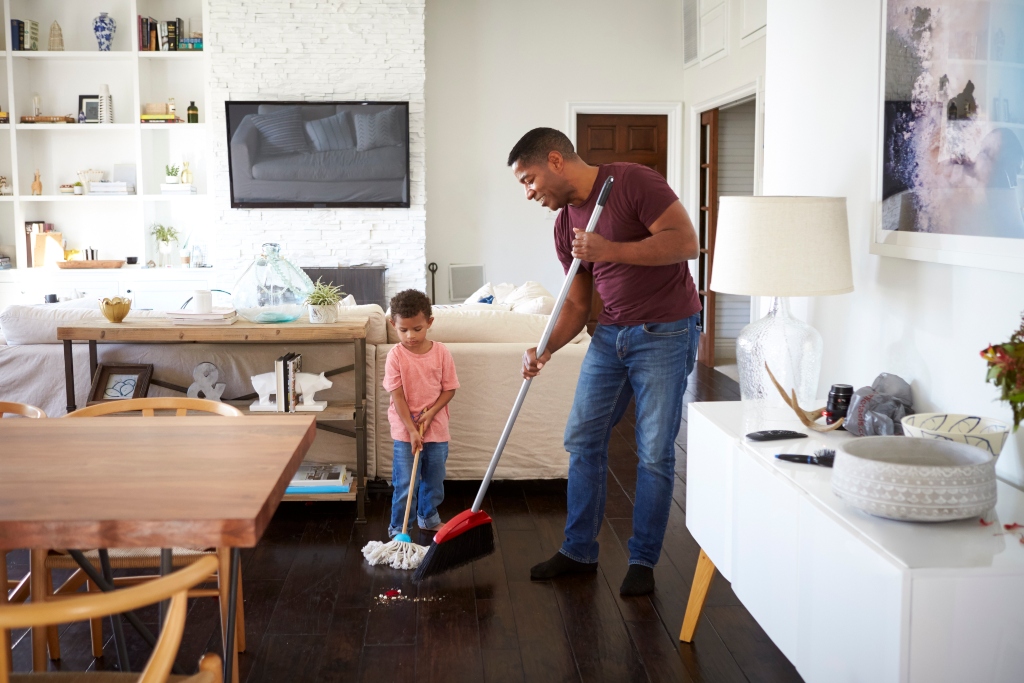
Spring officially began on March 20 and despite some chilly days and “surprise” snowfall, cooling season is on its way. You may be ready for the shift, but is your air conditioner? Use these spring HVAC reminders and tips to help prepare your system for the hot summer days ahead.
Cleaning Tips Around the Home
Whether you’ve already finished your spring cleaning or have yet to bust out the rubber gloves, don’t forget to incorporate your HVAC system into your routine:
- Dust and disinfect floors and hard surfaces around the home. Keeping them clean helps prevent dirt, allergens, and other airborne particles from getting inside your ductwork.
- Clear debris buildup from exhaust fans. After making sure the power is off, wash with soapy water and use a toothbrush to clean dirt and debris off the fan blades.
- Clean windows, blinds, and curtains. That way you can let in fresh air and sunlight without a producing a cloud of built-up dust whenever you open them.
- Dust the blades of your ceiling fans. Similarly, you don’t want dust to fly all over whenever you turn the fan on. And remember to run fans counterclockwise in the summer to blow air straight down and create a windchill effect.
- Clean the grills of floor registers and air vents. Use a vacuum to remove collected dust and debris. For a deeper clean, remove the vent, scrub the individual grill spaces with a rag and butter knife, and then rinse with warm soapy water.
Have your Ductwork Professionally Cleaned
While regular dusting, mopping, vacuuming, and cleaning of the vents and registers helps minimize the amount of debris that gets into your ductwork, there’s no way to prevent it entirely. Duct cleaning helps prevent dust, pollen, and other harmful particles from accumulating and impacting the health of your HVAC system and indoor air quality.
Seal the Home
Don’t let the cool air your HVAC system produces go to waste. Check windows, doors, and exterior walls for cracks and seams that could let indoor air escape and hot, humid outdoor air sneak in. Seal them with caulk to help maintain efficient cooling.
…but Provide Proper Ventilation
Providing fresh air and adequate ventilation are vital to maintaining indoor air quality. Open windows on nice days for natural ventilation and air flow. Consider installing an air exchanger that simultaneously removes stale, recycled indoor air while supplying fresh, filtered air from outside.
Test the System & Schedule Preventative Maintenance
Don’t wait for the first hot, humid day of the year to test your air conditioner. Turn the system on now to check for any issues, and schedule annual preventative maintenance with the local HVAC experts at WestAIR to ensure optimal performance, efficiency, and safety.
With Minnesota’s unpredictable weather, spring can feel like little more than a brief break between the last snowfall and the first hot, humid day of summer. Don’t let the window sneak by without giving your home’s air conditioner some much needed TLC! Use these spring HVAC reminders to help ensure your system is ready to keep your home cool and cozy all season long.
For all your heating and cooling needs, trust the knowledgeable, experienced HVAC professionals at WestAIR. Contact us to learn more about our services.
This entry was posted in AC,Air Conditioning,Cooling,Duct Cleaning,Energy Savings,Health Tips,HVAC Maintenance,Indoor Air Quality,Spring,Tips and tagged Air conditioner, Air conditioner maintenance, Air conditioner tune-up, air conditioning, Annual check-up, Annual service maintenance check, Cooling Season, Cooling Season Prep, Cooling system, Cooling Tips, Duct cleaning, Duct cleaning service, Professional duct cleaning, Spring, Spring Cleaning, Spring Heating and Cooling, Spring HVAC, Spring HVAC Reminders, WestAIR Heating & Cooling
Understanding and Controlling Indoor Humidity
Posted on by WestAIR Heating & Cooling

The hottest time of year is upon us, and we all know how uncomfortable Minnesota’s humidity can be. Our home should be a cool, comfy escape on hot summer days. To help, we put together this guide to understanding and controlling indoor humidity.
Understanding the Basics: Humidity Vs. Relative Humidity
Simply put, humidity measures the amount of water vapor in the air. However, since warm air can retain more moisture than cold air, we look at relative humidity (RH): the amount of water vapor present relative to the total amount the air can hold at the given temperature. RH illustrates how the air actually feels and affects our comfort. The ideal RH for a home is typically between 40 and 60 percent.
Methods for Controlling Indoor Humidity
Essentially, high levels of indoor RH occur when excess moisture enters the home but can’t escape. Use these tips for controlling indoor humidity and keep your home cool and cozy this summer.
Run Your Air Conditioner
By replacing warm air with cooler air, A/C systems naturally reduce indoor humidity. Again, cool air retains less moisture, so running your air conditioner helps decrease RH in the home.
Don’t Introduce Extra Moisture to the Air
More moisture means more humidity. Certain everyday activities naturally release moisture in the air and should be altered to control RH:
- Avoid meals that require boiling water, or at least cover the pot whenever possible. Use the kitchen exhaust fan when cooking.
- Take colder, shorter showers to avoid the steam of hot water, and run your exhaust fan during and for 5 to 10 minutes afterwards.
- Hang laundry outside to dry so the evaporated moisture doesn’t get trapped in the home.
Provide Proper Ventilation & Exhaust
Remember, higher humidity happens when moisture can’t escape, so make sure that it can:
- On nice days, open up the windows to let stale, humid air out and fresh air in.
- Change or clean your HVAC system’s filter monthly for optimal cooling and ventilation.
- Ensure laundry, kitchen, and bathroom exhaust fans are clear of dust and debris.
- Schedule an A/C tune-up with your local HVAC specialist to ensure your system runs at peak performance.
Fix Plumbing Leaks
Leaky pipes and fixtures can damage your home and also add moisture to the air, so get them fixed ASAP. Warning signs include water stains on ceilings or walls, wet spots, and irregularly high water bills. You can also wrap exposed pipes with insulators to prevent condensation.
Seal Leaks in Ductwork
Well designed, properly installed ductwork distributes air evenly throughout the home. Leaks create a pressure imbalance and can let humid air in or cold air out. Have your ducts professionally cleaned and inspected to make sure your system circulates air properly.
HVAC Solutions
Humidity can crack or warp wood, promote rot in the home’s structure over time, and increase accumulation of dust and other irritants to asthma and allergy sufferers. Luckily, there are supplemental HVAC solutions to consider if indoor humidity is a big concern:
- Whole house dehumidifiers work in conjunction with your HVAC system to remove excess moisture.
- Portable dehumidifiers can be placed in bathrooms, basements, and other specific locations known to house extra moisture.
- Air exchangers exhaust excess humidity and stale indoor air and deliver filtered outdoor air inside simultaneously.
As we use our homes as a welcome escape from the heat, clean and cool air becomes a must. Use this guide to controlling indoor humidity to keep your family comfy throughout the dog days of summer. And remember to rely on the residential HVAC experts for all your air conditioning and indoor air quality needs.
Contact us today to schedule service and learn more.
This entry was posted in AC,Air Conditioning,Cooling,Duct Cleaning,Health Tips,Indoor Air Quality,Tips and tagged air conditioning, Air filters, Controlling Indoor Humidity, Cooling Mistakes, Cooling Season, Cooling Tips, Duct cleaning, Family Health, Home Cooling, Homeowner Education, Homeowner Tips, Humidity, HVAC Education, HVAC Safety, HVAC tips, Indoor air quality, Indoor humidity, Preventative Maintenance, Summer Cooling, Summer HVAC Tips, Understanding Humidity
Energy-Saving HVAC Tips for Summer Cooling
Posted on by WestAIR Heating & Cooling

So far, June has given Minnesotans multiple occasions to fire up the A/C. With the dog days of summer yet to come, plenty more hot and humid days await. But don’t sweat it – WestAIR is here to help! We put together these energy-saving HVAC tips to help minimize your utility bills this cooling season.
Prevent Issues Later with Professional Service Now
Having an HVAC technician inspect, service, and clean your system now helps ensure peak performance and prevent costly repairs down the road. If you haven’t already, contact your local HVAC professional about the following services.
- Annual preventative maintenance: Give your system a tune-up before the season to ensure optimal performance and efficiency. During service, the technician can also catch small issues before they become expensive repairs and help you decide if it’s time for an upgrade.
- Duct cleaning: Ductwork should be cleaned annually as dirt, pollen, hair, dust, and other particles collect inside and reduce indoor air quality over time. They can also clog up the system if left long enough, decreasing its efficiency and increasing energy bills.
Optimize A/C Performance with Tips Around the Home
You don’t have to shut down your HVAC system and suffer through the heat to cut costs. Instead, follow these simple tips and get the most out of your A/C this summer.
- Keep vents clean and clear. Blocking vents with rugs, furniture, and other items decreases efficiency. Make sure cool air can circulate freely, and vacuum vents regularly to clean away dust, dirt, and other debris.
- Maintain a clean air filter. Filters prevent debris from getting into your HVAC unit and naturally become dirty or clogged, which adds stress onto the system. To avoid issues, change (or clean, if re-usable) your filter monthly.
- Seal the home. Don’t let cool air escape or heat enter whenever possible. Caulk any cracks or seams around the home; lock windows shut to ensure a tight seal; draw blinds and curtains to prevent any natural heating from sunlight.
- Be smart about electronics. Unplug chargers, small appliances, and other electronics when they’re not in use. Also, avoid placing heat-generating devices like lamps and TVs near thermostats – the heat can make it seem like the room is hotter than it really is and trick the thermostat into working harder to cool the home.
- Grill outside or plan cold meals. Cooking in the oven or on the stove produces heat and can raise the temperature in your kitchen by up to 10 degrees. Take advantage of the summer weather and fire up the grill, or plan some cold meals like salads and sandwiches.
- Use ceiling fans. Set ceiling fans to spin counterclockwise so they blow air straight down. This will keep cool air low and create a wind chill effect, allowing you to turn the thermostat up a few degrees.
- Consider installing a programmable thermostat. While proper thermostat management can help keep bills low, constantly changing the thermostat can impact your HVAC system’s efficiency and health. Programmable thermostats let you pre-set custom temperature and humidity levels for multiple days instead of monitoring it manually.
Lower Utility Bills with Strategic Water Use
According to the U.S. Department of Energy (DOE), 18 percent of your home’s energy consumption comes from water heating. Try these water use strategies to help cut utility costs throughout the summer months.
- Wash clothes with cold or warm water. According to the U.S. Environmental Protection Agency (EPA), water heating accounts for 90 percent of the energy used by your washing machine. Avoid washing with hot water whenever possible. Also, line-dry laundry outside to save more energy and reduce indoor humidity.
- Take cold(er) showers. Hot showers require more energy, and the steam they produce increases humidity. Take colder, shorter showers to lower costs and help maintain indoor air quality.
- Water the lawn and garden at dawn or dusk. Water usage tends to increase in the summer, especially outdoors due to lawn, garden, and landscape watering. Do these tasks in the early morning or at dusk to prevent the water from quickly evaporating in the summer heat. This will help cut costs and keep your yard and garden healthy.
With July and August still ahead, we know the cooling season is far from over here in Minnesota. Use these energy-saving HVAC tips to minimize utility costs while keeping your home cool and cozy this summer. And for all of your heating and cooling needs, rely on the residential HVAC experts at WestAIR for thorough, high-quality service.
Contact us today to schedule service and learn more.
This entry was posted in AC,Air Conditioning,Cooling,Duct Cleaning,Energy Savings,Tips and tagged air conditioning, Air filters, Cooling Mistakes, Cooling Tips, Duct cleaning, Energy efficiency, Energy efficient, Energy savings, Energy-Saving HVAC Tips, Energy-saving tips, Family Health, Home Cooling, Homeowner Education, Homeowner Tips, HVAC Education, HVAC Maintenance, HVAC Mistakes, HVAC Safety, HVAC tips, Indoor air quality, Preventative Maintenance, Summer Cooling, Summer HVAC Tips
Common Summer HVAC Mistakes to Avoid
Posted on by WestAIR Heating & Cooling

Summer weather is finally upon us, and we know that 2020 won’t be like every other year. Air conditioners play a vital role here in Minnesota and keeping them running properly will be even more important this time around. To help, we gathered a list of common summer HVAC mistakes to avoid as you keep your home feeling cool and cozy.
Neglecting Regular Maintenance
Regular HVAC maintenance helps prevent inconvenient breakdowns that leave you without cool, comfortable air and with an expensive repair to get it back. Avoid these mistakes to help keep your system running smoothly all season long.
- Not scheduling preventative maintenance. Don’t wait until you need an HVAC professional to call one. Have a regular preventative maintenance check early on to promote optimal performance throughout the summer.
- Running a system with dirty ducts. Dirt, dust, pet hair, and other harmful particles settle into your ductwork over time and get blown into the air you and your family breathe. Left long enough, they can also clog the system, forcing it to work harder and hiking up your utility bills as a result. Annual duct cleaning is vital to the health and efficiency of your HVAC system, as well as indoor air quality.
- Not keeping a clean filter. Just like ductwork, dirty or clogged air filters cause added stress on your HVAC system and decreased air quality. Plan to change your air filter (or clean if re-usable) monthly.
Having an Oversized System
Bigger isn’t always better when it comes to HVAC. Proper air conditioning will circulate cool air and remove humidity simultaneously and evenly – if the unit is too big, it will cool the home quickly without removing enough moisture from the air. As a result, you won’t feel comfortably cool and may turn the thermostat even lower, working the system harder and increasing energy use.
If your A/C isn’t cooling the home how you feel it should, consult your local HVAC experts about possibly upgrading to a right-sized system.
Closing Unused Air Vents
Some homeowners worry about cooling rooms that aren’t used on a daily basis. However, as mentioned above, properly sized systems are designed to evenly distribute cool air to the entire home. While it may seem logical to close unused vents to focus on cooling high-traffic areas, closing unused air vents decreases system efficiency and increases its workload.
Improper Thermostat Management
Altering the thermostat setting can be a touchy subject in the home, and doing so can impact the efficiency and health of your system. Remember to avoid these common mistakes.
- Don’t crank the thermostat. You may be tempted to turn the temp extra-low to cool the home quickly, but this method actually decreases efficiency and adds stress onto the system. Be patient. Set the temperature to a comfortable level and let it run at its optimal rate.
- Don’t pay to keep an empty house cool. No need to use extra energy to keep the house comfy if no one’s home. Turn the thermostat up when you’re gone for work or out of town, and turn it back down when you return.
- But don’t turn the system off. Turning the system completely off forces it to work harder to cool the home when it’s fired back up. Unless you’re leaving for an extended trip, keep the A/C running at a higher temperature.
Consider Installing a Programmable Thermostat
Programmable thermostats let you customize and set temperature and humidity settings for multiple days, eliminating the need to manually monitor them throughout the day. Contact us to learn more about optimizing your summertime cooling performance and schedule with a new smart thermostat.
Crowding/Obstructing the Outdoor Unit
Outdoor units need to easily draw in air to operate efficiently.
Clear any clutter and obstructions within two to three feet of the unit and be
sure to keep it clean of grass clippings, dirt, and other debris throughout the
summer.
Not Properly Sealing the Home
It’s a pretty simple concept: Keep cool air from escaping and heat from entering the home. Be mindful of these simple mistakes that impact your home’s cooling comfort and costs.
- Neglecting leaks and drafts. Inspect windows, doors, and exterior walls and seal or caulk any small cracks or gaps that could let cool air out and warm air in.
- Leaving windows unlocked and uncovered. Even shut windows can have small leaks, so lock them to ensure a tight seal. During the day, use curtains and shades to block direct rays of sunlight from heating your home.
Not Managing Indoor Humidity
Humidity plays a crucial role when it comes to home comfort and air quality. While HVAC systems pull moisture from the air, there are many things you can do to help reduce humidity in your home, such as taking cold(er) showers, using exhaust fans, and installing a dehumidifier to work in conjunction with your air conditioner.
Minnesota summers provide amazing opportunities to get outside and enjoy nature’s beauty, but we all know the importance of having a cool, comfortable home to relax in. Keep these common summer HVAC mistakes in mind to help avoid any issues with your system this cooling season.
As your residential HVAC experts, WestAIR is proud to reliably serve all your heating and cooling needs. Contact us today to schedule service and learn more.
This entry was posted in AC,Air Conditioning,Cooling,Duct Cleaning,Energy Savings,Indoor Air Quality,Repairs,Tips and tagged air conditioning, Air filters, Cooling Mistakes, Cooling Tips, Duct cleaning, Family Health, Family Safety, Home Cooling, Home Safety, Homeowner Education, Homeowner Tips, HVAC Education, HVAC Maintenance, HVAC Mistakes, HVAC Safety, HVAC tips, Indoor air quality, Preventative Maintenance, Summer Cooling, UV Light, WestAIR Heating & Cooling
Tips for Controlling Spring Allergies at Home
Posted on by WestAIR Heating & Cooling
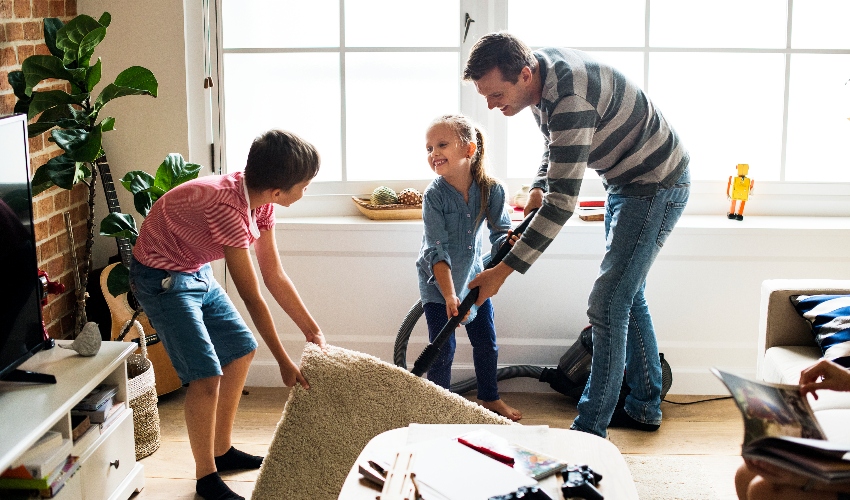
Seeing warmer weather and longer days is bittersweet for allergy sufferers. Spring may be in the air, but so are pesky allergens. As we spend more time in our homes during the COVID-19 pandemic, indoor air quality becomes more important than ever. Use these helpful tips for controlling spring allergies at home to stay healthy and comfortable.
Change Shoes and Clothing After Being Outdoors
Controlling allergies begins with limiting exposure to allergens. Limit your time outdoors whenever possible. If you do venture out, don’t wear the same clothing and shoes around your home. Dirt, dust, pollen, and other irritants can cling to you and your wardrobe. Avoid tracking them around by changing as soon as you return home.
Dust, Vacuum, and Mop Regularly
Dust and allergens will settle on the surfaces of your home. Try to clean them at least weekly, and more often if you are leaving windows and doors open.
Have Your Ductwork Cleaned
Air ducts transport fresh air between your home and HVAC system, and over time will collect dust, pollen, and other airborne particles that travel through them. Having them cleaned annually is vital to indoor air quality. Schedule a professional duct cleaning service to help ensure you’re ready for the season.
Maintain a Clean Air Filter
The air filter blocks airborne irritants from getting into your system. However, it becomes dirty and less effective over time. If left long enough, the filter can also become clogged and make your system work harder, causing higher bills and faster wear and tear. Change (or clean it if re-usable) your air filter monthly to keep the system running properly.
Install an Air Cleaner
The name says it all. An air cleaner uses a filter to trap up to 97 percent of airborne bacteria, mold, dander, and other pollen-sized irritants. It can also eliminate viruses, kill germs, and neutralize odors and fumes.
Invest in Ultraviolet (UV) Light Air Purification
Breaking through an organism’s cell wall to destroy its DNA, UV light rays prevent that organism from reproducing and causing illness. UV technology has been around for over 100 years, and many homeowners today utilize it as a highly effective way to kill harmful bacteria, mold, and viruses in the home.
These systems conveniently work in conjunction with your current HVAC system. WestAIR is an authorized dealer of BreatheCLEAN UV air purification systems. Contact us to learn more or to schedule your UV light system installation.
Consider an Air Exchanger
Letting fresh air into the home can be beneficial, but it brings allergens along with it. An air exchanger solves this by exhausting stale indoor air and excess humidity while also delivering a continuous flow of filtered outdoor air inside. Installing a programmable thermostat will help you maintain indoor comfort without constantly managing temperature. And again, remember to keep your filter clean!
Controlling spring allergies at home comes down to limiting exposure to allergens. It sounds simple, but don’t be fooled into thinking the home is a completely irritant-free safe space. While we may be spending less time outdoors than usual this spring, use these tips to maintain indoor air quality and keep allergy symptoms at bay.
WestAIR’s HVAC experts are here for all your heating and cooling needs. As we continue helping our customers prepare their homes for the spring and summer during this time, our team is taking extra precautions to protect the health and safety of themselves and everyone they service. We prioritize your comfort and satisfaction in all that we do. Contact us today to schedule service and learn more.
This entry was posted in AC,Air Conditioning,Cooling,Duct Cleaning,Health Tips,Indoor Air Quality,Spring,Tips and tagged Air cleaner, air conditioning, Air exchanger, Air filters, Family Health, Family Safety, Heating, Home Heating, Home Safety, Homeowner Education, Homeowner Tips, HVAC Safety, HVAC tips, Importance of Indoor Air Quality, Indoor air quality, Spring Allergies, Spring Cleaning, Spring Heating and Cooling, UV Light
HVAC Tips for Spring Cleaning
Posted on by WestAIR Heating & Cooling

We can finally see that spring is on its way! With the weather warming up, it’s time to start preparing the home for the cooling season. Will yours be ready? To help out, we put together a list of HVAC tips for spring cleaning.
Change Air Filter (or Clean if Re-Usable)
A dirty or clogged air filter makes your system work harder, leading to higher bills and increased wear and tear. It also negatively affects indoor air quality. Change your air filter (or clean it if re-usable), and plan to do so monthly to keep the system working properly.
Clean Floor Registers and Return Air Vents
If dust gets into your HVAC system, it can negatively impact both energy efficiency and your home’s air quality. Use a vacuum to clean your floor registers and return air vents. You can get a deeper clean by removing the vent, brushing the individual grill spaces with a rag and butter knife, and then rinsing with warm soapy water.
Dust and Mop Around the Home
Though you should do these chores regularly throughout the year, dusting and mopping are especially important during spring. With windows and doors being left open more often, airborne particles like dust, dirt, and allergens accumulate on your surfaces and eventually make their way into your HVAC system.
Have Your Ductwork Cleaned
Air ducts supply your HVAC system with fresh air, but they can quickly become dirty from all the dust, pollen, and other harmful particles floating in the air. Keeping them clean helps prevent these harmful pollutants from accumulating in your ductwork and impacting the health of your HVAC system and air quality. Spring cleaning is the perfect time for a professional duct cleaning service, which you should do annually.
Clean Bathroom Exhaust Fan(s)
Clean and properly functioning, bathroom exhaust fans help with odor and moisture control, which helps prevent mold and mildew. Be sure the power is off, wash it with soapy water, and clean dirt and debris off the fan blades with a toothbrush.
Clean and Clear Debris from Outdoor A/C Unit
If your outdoor unit doesn’t get enough air or has dirt-covered coils, it could overheat. Turn off the power and clear away plants, weeds, leaves, branches, etc., and then rinse the condenser coils with a garden hose.
Check/Change Batteries in Smoke/Carbon Monoxide Detectors
Smoke and carbon monoxide detectors are a crucial line of defense against two common household dangers. Check the batteries and replace them if necessary. You should also dust or vacuum them to optimize performance.
Schedule Preventative Maintenance
Don’t get caught with a failing A/C or expensive repair bill down the road. Schedule a preventative maintenance service with your local HVAC contractor to ensure your system is running smoothly and ready for the cooling season.
During Minnesota winters, at times it feels like spring will never come. But when the days get longer and the temps rise, we know it’s time to start getting ready. Use these HVAC tips for spring cleaning to help make sure your home is ready for a safe, comfortable, and happy cooling season.
The HVAC professionals at WestAIR offer experience and expertise to cover all your heating and cooling needs. Contact us today to schedule service and learn more.
This entry was posted in AC,Air Conditioning,Cooling,Duct Cleaning,Health Tips,Indoor Air Quality,Spring,Tips and tagged air conditioning, Duct cleaning, Duct cleaning service, Family Health, Family Safety, Heating, Home Heating, Home Safety, Homeowner Education, Homeowner Tips, HVAC Safety, HVAC tips, Importance of Indoor Air Quality, Indoor air quality, Professional duct cleaning, Spring Cleaning, Spring Heating and Cooling
HVAC Tips for Summer Trips
Posted on by WestAIR Heating & Cooling
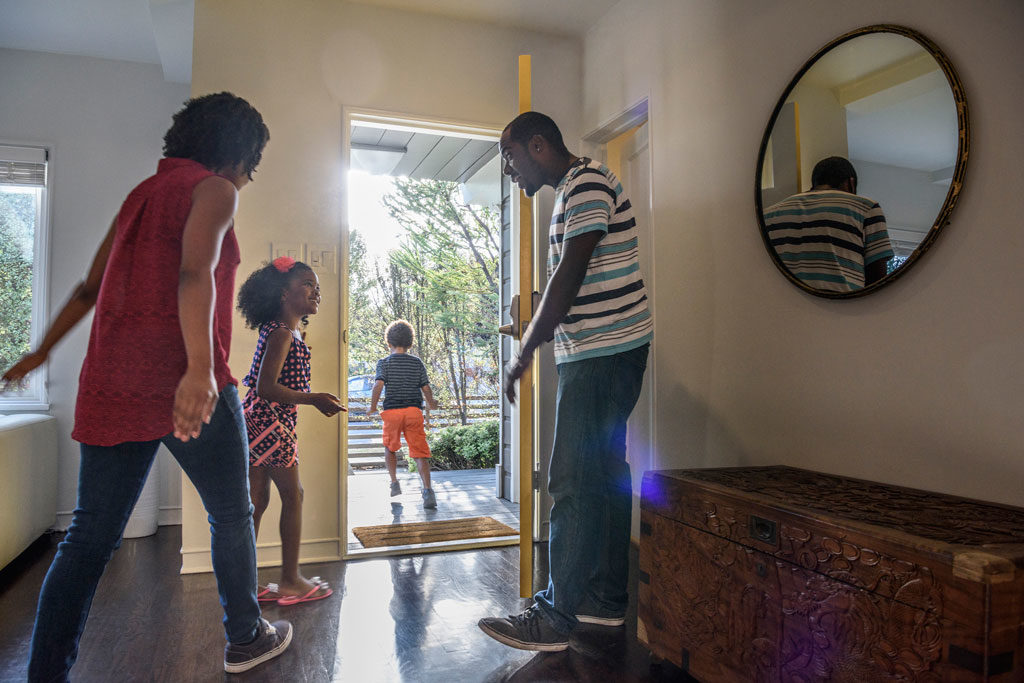
What exciting summer trips do you have planned? Before you pack up those bags and lock the door, take time to make sure your air conditioning will fare well while you are gone. Proper preparation will save you money on utility bills and keep your home’s air quality safe. So before you leave town, check out these HVAC tips for summer trips:
Don’t turn your HVAC system off
Many homeowners think they need to turn their cooling off to save money while they’re away in the summer. But you may end up spending more than you saved trying to cool your home back down when you return. An HVAC system doesn’t just regulate temperature, it also circulates air, controls humidity, and keeps indoor pollutants at bay. If you turn it off in the summer, humidity levels may rise, and you could come home to mold issues.
Program your thermostat
Before you leave, set the thermostat four degrees higher than your normal comfortable temperature, but keep it below 85 degrees. Check out the smart thermostats we offer with easy, seven-day programming and humidity control so you can rest assured your home is in good hands.
Prepare for rain
Install a full-house surge protector to save your system from power outages in case of a large summer storm or downed power lines. A surge protector will absorb the electrical overload and channel it into the ground so the power doesn’t damage your HVAC units.
Seal your home
Close all doors, windows, blinds, curtains, and storm shutters. Your home will stay cooler if you block the sun out, and conditioned air will remain inside if your home is sealed from the elements. Make sure supply and return registers are open so air circulates freely throughout the home.
Unplug
Unplugging electronics before you leave for vacation will help your system cool more efficiently. Some appliances still generate heat even if they aren’t being used. If you plan to be away for a significant amount of time, empty and unplug the refrigerator and turn down the water heater.
Give your equipment some attention
Even if you’ve just recently serviced your equipment, it’s important to check it before you leave it unattended. Replace the air filter if it’s dirty and clear the outdoor units of anything that would obstruct airflow. Pull away weeds, trim shrubbery, remove branches or twigs resting on the unit, and unclog the condensate drain if it is blocked.
Call WestAIR
Finally, schedule service so you don’t have to worry when you are states away enjoying vacation with your family. Our technicians will recharge the refrigerant if it’s low, clean the evaporator coils, and address any issues your air conditioning unit may have.
WestAIR Heating & Cooling provides cooling solutions to fit your home and budget. We offer energy-efficient A/C units, smart thermostats, filters, air cleaners, and more. Contact us today.
This entry was posted in Air Conditioning,Cooling,Tips and tagged A/C, A/C tune-up, Air circulation, air conditioning, Air filters, Comfortable, Cooling, Cooling system, Energy efficiency, Energy savings, HVAC, HVAC tips, Indoor air quality, Window curtains
Subscribe to Our Blog
With RSS feeds, you don't have to visit our site everyday to keep up to date. Simply subscribe to our blog via RSS or Email and our posts will come to you!
Search Blog Posts
Categories
Archives
- April 2024 (1)
- February 2024 (1)
- January 2024 (1)
- February 2023 (1)
- January 2023 (1)
- December 2022 (1)
- November 2022 (1)
- October 2022 (1)
- September 2022 (1)
- August 2022 (1)
- July 2022 (1)
- June 2022 (1)
- May 2022 (1)
- April 2022 (1)
- March 2022 (1)
- February 2022 (2)
- December 2021 (1)
- November 2021 (1)
- October 2021 (1)
- September 2021 (1)
- August 2021 (1)
- July 2021 (1)
- June 2021 (1)
- May 2021 (1)
- April 2021 (1)
- March 2021 (2)
- January 2021 (1)
- December 2020 (1)
- November 2020 (1)
- October 2020 (1)
- September 2020 (1)
- August 2020 (1)
- July 2020 (1)
- June 2020 (1)
- May 2020 (1)
- April 2020 (1)
- March 2020 (1)
- February 2020 (2)
- November 2019 (1)
- August 2019 (2)
- June 2019 (1)
- May 2019 (1)
- April 2019 (1)
- March 2019 (1)
- February 2019 (1)
- January 2019 (1)
- December 2018 (1)
- November 2018 (1)
- October 2018 (1)
- September 2018 (1)
- August 2018 (2)
- July 2018 (1)
- May 2018 (1)
- April 2018 (1)
- March 2018 (1)
- February 2018 (1)
- January 2018 (1)
- December 2017 (3)
- November 2017 (2)
- October 2017 (2)
- September 2017 (2)
- August 2017 (1)
- July 2017 (2)
- June 2017 (3)
- May 2017 (2)
- January 2017 (4)
- November 2016 (1)
- September 2016 (3)
- July 2016 (2)
- June 2016 (2)
- May 2016 (4)
- April 2016 (1)
- March 2016 (2)
- February 2016 (2)
- January 2016 (1)
- August 2015 (1)
- July 2015 (1)
- June 2015 (3)
- May 2015 (1)
- July 2014 (2)
- June 2014 (1)
- April 2014 (1)
- March 2014 (1)
- February 2014 (2)
- October 2013 (1)
- May 2013 (1)
- March 2013 (1)
- February 2013 (1)
- August 2012 (1)
- July 2012 (2)
- June 2012 (2)
- May 2012 (2)
- March 2012 (1)
- February 2012 (1)
- December 2011 (1)
- November 2011 (1)
- October 2011 (1)
- September 2011 (1)
- August 2011 (1)
- June 2011 (1)
- May 2011 (1)
 Subscribe
Subscribe Subscribe
Subscribe